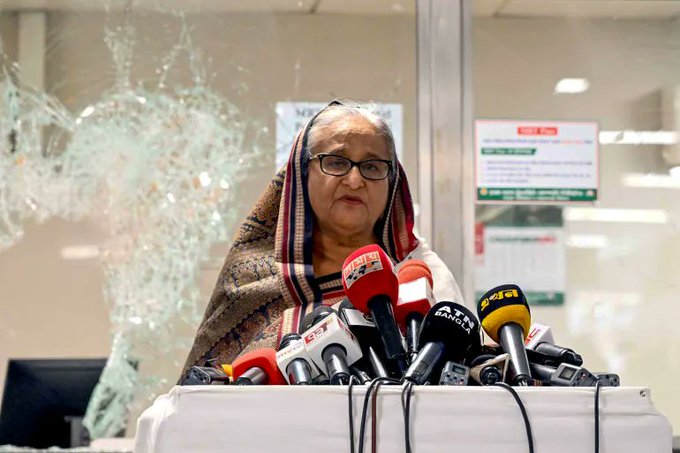In a dramatic turn of events, Bangladesh’s Prime Minister Sheikh Hasina has resigned and fled to India following weeks of intense and deadly protests across the country. The 76-year-old leader, along with her sister, reportedly took a military helicopter to West Bengal, India’s eastern state, although some sources suggest she might have headed to the northeastern state of Tripura.
The resignation comes after thousands of demonstrators stormed Hasina’s official residence in Dhaka, shouting slogans and celebrating the departure of the 15-year leader. The protests have seen violent clashes, with at least 95 people, including 14 police officers, reported dead in the capital on Sunday. The violence continued into Monday, with additional clashes in Jatrabari and Dhaka Medical College areas resulting in further fatalities.
General Waker-Uz-Zaman, Bangladesh’s army chief, has addressed the nation, promising a resolution to the crisis by tonight. He has announced plans to consult with the president about forming an interim government while assuring that the military will step back. General Zaman also pledged to investigate the deadly crackdowns that have contributed to the widespread outrage, with nearly 300 people killed in the last month of protests.
The demonstrations initially began with student activists calling for the abolition of a quota system for government jobs. However, tensions quickly escalated, leading to violent confrontations between protesters and police, as well as clashes with pro-government groups. The protests have evolved into a broader movement demanding accountability from the government and calling for Hasina’s resignation.
Hasina’s resignation comes in the wake of a nationwide curfew and calls from student activists for a march on Dhaka to press her to step down. The political turmoil has intensified following the January election, which Hasina won for a fourth consecutive term amid a boycott by opposition parties and the imprisonment of thousands of opposition members.
As the daughter of independence leader Sheikh Mujibur Rahman, Hasina is the longest-serving leader in Bangladesh’s history. Her tenure has seen significant controversy, with critics accusing her of becoming increasingly autocratic and threatening the country’s democratic processes. Her father was assassinated during a 1975 army coup, and most of his family members were killed, leaving only Sheikh Hasina and her sister Sheikh Rehana as survivors.


